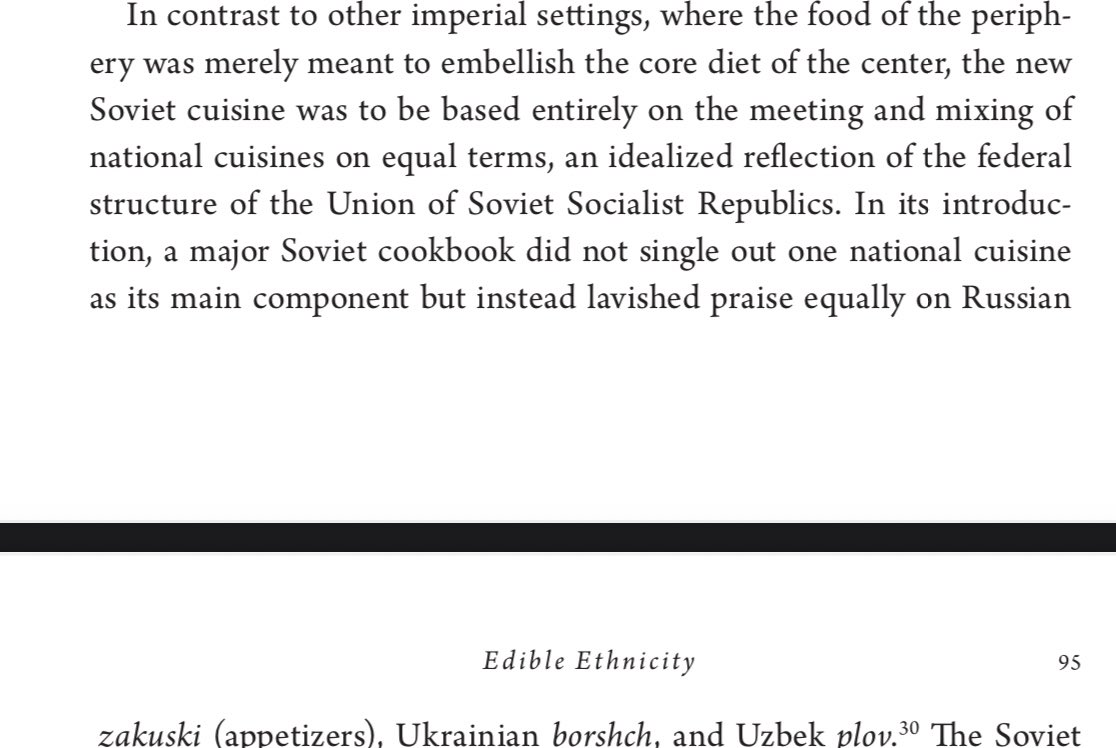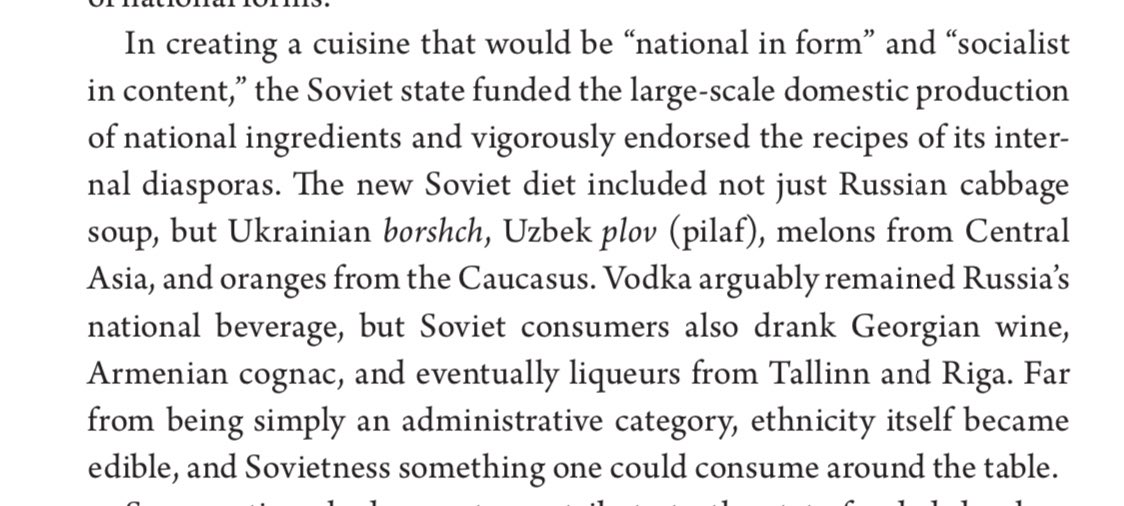In response to some shitlib posting the picture below accusing the Soviet Union of being an ethnonationalist state, which is fucking wrong by the way, the good historian "After History" pokes their head out to fucking thrash the shit out of them with facts and logic.




From Ukraine to the Caucuses to Central Asia, the USSR encompassed territory that included, at one point, 1/6 of the earth, representing an incredibly diverse array of cultures. It’s inaccurate to reduce the USSR, and it’s cuisine, to a single ethnicity
In the world of food, the Soviets attempted to give equal attention to the multitude of Soviet national cuisines, which was reflected in state cookbooks. Georgian food grew especially popular, becoming a popular “exotic” cuisine and a staple of middle class Soviets households
Notably, the Soviets did not give a central role to Russian food, and emphasized the diverse nature of the new Soviet diet which was to reflect the ideals of a “fraternal brotherhood of nations.” There was a concerted effort to popularize the cuisine of Soviet minority cultures
The Soviet state funded the domestic production of ingredients specific to different national dishes, promoting the individual cultural/national identities within the USSR, while also celebrating a broader Soviet patriotism rooted in “domestic internationalism.”
It is important to note that minority cuisine was not appropriated or assimilated within a host culture, as seen in certain colonial societies, but promoted within the Soviet context of indigenization—state-led affirmative action policies of minority nation building
Food is just one example—this extended to many areas of cultural life. Soviet policies of “multiculturalism” long preceded those in the West, which still, to this day, do not match Soviet minority nation building in their scale, sophistication, or ideological commitment
“From Soviet Cuisine to Kremlin Diet: Changes in Consumption and Lifestyle in Twentieth-Century Russia” by Tatiana Voronina (book chapter)
“Familiar Strangers: The Georgian Diaspora and the Evolution of Soviet Empire” by Erik R. Scott


I was reading a travelogue by a Canadian academic in 1960's Siberia and all of the professors and officials in the eastern cities were ethnic Siberians that were multilingual in Russian and their indigenous languages. One of them asked the author how many indigenous professors there were at his university and he replied "Two. In all of Canada."